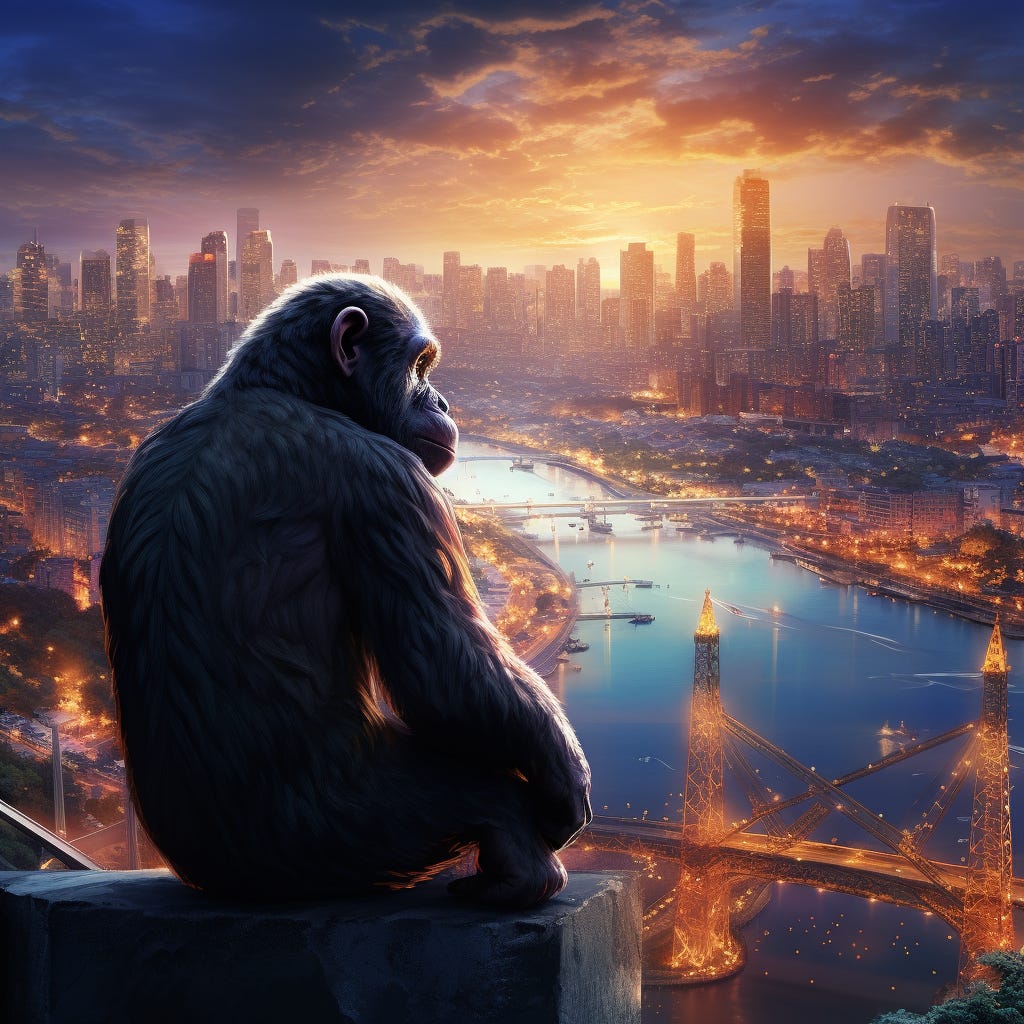Humanity has developed an extremely accurate picture of the universe.
We know how to capture energy from food and convert it efficiently into productive work; we have harnessed the forces of the sun, the tides, and minerals to power machines that do productive work for us; we have used our machines to become the apex predator among all living things on Earth, despite being significantly physically weaker than many other animals.
Today, we live longer, more comfortable lives than any other species in the known universe. We have thrived on Earth – nearly doubling our lifespan over a period of just a few thousand years, which is just a millisecond in evolutionary time – and have proliferated as a result. What started as a small-brained pack of highly communicative apes has now become a species with over 8 billion members tucked into every hospitable (and even many inhospitable) climate(s) on the planet.
Human thriving is only possible due to our mastery of technology. Over eons, we have found more, and more accurate and resilient, ways of encoding knowledge about the universe for future generations.
The first technologies – methods for making fire, strategies for hunting, tools for cooking – were passed down verbally, a lossy and fragile method for preserving knowledge. Even after a few millennia had passed and we had invented writing, most lessons were still encoded verbally. The Odyssey and Iliad were first performed as oral epics that historians needed to memorize and recite, and multiple generations passed before the stories were written down and locked into the form that we have maintained for the past 2,700 years.
With the inventions of the printing press, digital word processing, and the proliferation of community-generated media on the internet, the human capacity to store information for future generations grew exponentially. We could write down more, retain more of what was written, and share our writing with lower and lower marginal costs – today, it’s trivially easy to learn calculus from a Berkeley professor while living in Nepal, or explore the wisdom of Buddhist monks while skipping class at Berkeley.
Simply: we learned more about the universe, and built technology to pass those lessons onto our offspring reliably and efficiently.
Modern life is now built on top of an enormous amount of helpful, and likely accurate, information about the world. Just as our genes incrementally built highly elaborate structures like eyes after millions of years of iteration, we have learned incrementally more and more about the universe, allowing us to build amazing technology that never could have appeared all at once. The iPhone required the discovery of fire to make glass, an understanding of electricity to make the capacitive touchscreen, and decades of improvement in silicon-processing to make transistors small enough to fit in your pocket.
It isn’t yet clear whether we have the capacity to continue to accelerate our progress towards understanding and mastering the universe around us, or whether we will soon hit some sort of limit.
If we do hit a limit, it seems unlikely that it will be found at the level of the species — and far more likely that our core deficiency will be in how to make personal use of the immense knowledge that humanity has collected as a species. Our capacity to teach and learn the lessons of our ancestors is not keeping pace with the acceleration of our ability to generate new knowledge — one can only earn so many PhDs, read so many books, and meet so many people by themselves.
Perhaps the answer to this problem will lie in ever-better Large Language Models, which give us a way to organize and access the sum total of everything we have learned as a species. Our current tools aren’t fully there yet, but they’re promising. I’d put money on their success or failure as the single most important determinant of the speed of humanity’s memetic evolution in the next 100 years.
We are no longer limited by the random shuffling of our genes. And our memes have become incredibly powerful. The primary question now is how we can best wield them.




